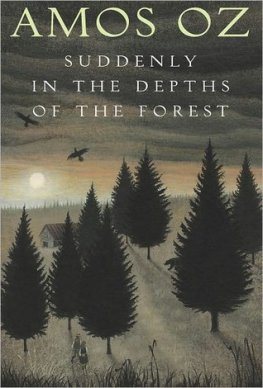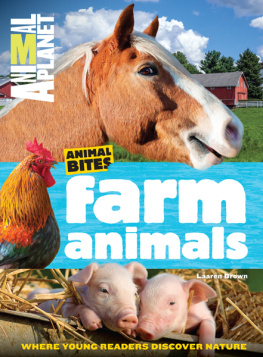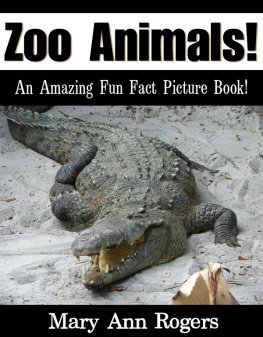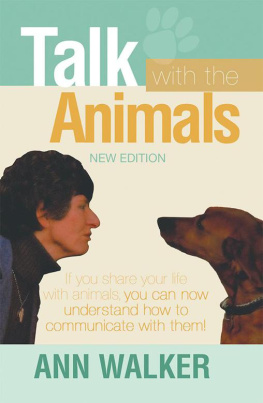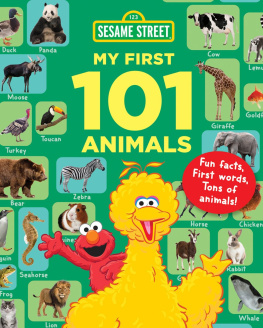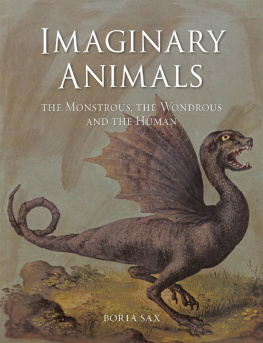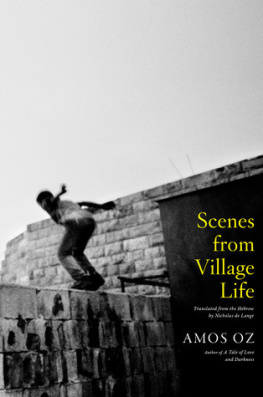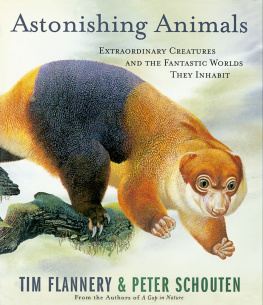Amos Oz
Suddenly in the Depths of the Forest
This book is dedicated
to the magnificent and beloved
Dean, Nadav, Alon, and Yael,
who aided me in telling this story and added ideas,
suggestions, and surprises.
Emanuella the Teacher described to the class what a bear looks like, how fish breathe, and the kind of sounds a hyena makes at night. She also hung pictures of animals and birds on the classroom walls. Most of the children made fun of her, because they'd never seen an animal in their lives. Many of them didn't quite believe there were such creatures in the world. At least not around here, they said. Besides, that teacher never found anyone in the whole village who had wanted to marry her, they said, and that's why her head was full of foxes, sparrows, all sorts of things people think up when they're lonely.
Emanuella's descriptions had only a minor effect on the children, except for Little Nimi, who began to dream about animals at night. Most of his classmates laughed at him when, first thing in the morning, he told them how the brown shoes he'd put next to his bed before he went to sleep had turned into two hedgehogs in the dark and crawled around the room all night, but in the morning, when he opened his eyes, they were just a pair of shoes next to his bed again. Another time, black bats came to his room at midnight and carried him off on their wings, flew through the walls of the house up into the sky above the village and over mountains and forests till they brought him to an enchanted castle.
Nimi had a muddled brain and a constantly runny nose. He also had a large gap between his prominent front teeth. The children called that gap the garbage dump.
Every morning Nimi would come to class and begin telling everyone about a new dream, and every morning they would say enough, we're sick and tired of you, shut that garbage dump of yours. And when he didn't stop, they made fun of him. But instead of being offended, Nimi would join in the ridicule. He would breathe in his snot and swallow it, and, brimming over with joy, would call himself the most insulting names the children had given him: garbage dump, fuzzy-brain, hedgehog-shoes.
More than once, Maya, daughter of Lilia the Baker, had whispered to Nimi from her seat behind him in class: Nimi. Listen. Dream about whatever you want, animals, girls, but keep it to yourself. Don't tell anyone. It just isn't a good idea.
Matti said to Maya, You don't understand. The only reason Nimi has those dreams is so he can tell us about them. And anyway, he doesn't stop dreaming even when he wakes up in the morning.
Everything delighted Nimi, anything made him happy: the cracked mug in the kitchen and the full moon in the sky, Emanuella's necklace and his own buck teeth, the buttons he forgot to button and the wind howling in the forest. Nimi found fun in everything there was and in anything that happened. And the least little thing was enough to make him burst out laughing.
Until the day he ran out of class, out of the village, and climbed up to the forest alone. Most of the village people searched for him for two or three days. The police searched for another week or ten days. After that, only his parents and sister kept looking.
He came back three weeks later, thin and filthy, all scratched and bruised, but whooping with joy and excitement. And Little Nimi has been whooping ever since and has never spoken again: he hasn't said a single word since he came back from the forest; he just wanders around the village streets barefoot and ragged, his nose running, baring his teeth and the gap between them, skipping from one backyard to another, climbing trees and poles, whooping all the time, his right eye constantly watering because of his allergy.
He couldn't go back to school now that he had whoopitis. On their way home, the children would whoop at him on purpose to make him whoop back. They called him Nimi the Owl. The doctor said it would pass with time: perhaps there, in the forest, something had frightened or shocked him, and now he had whoopitis.
Maya said to Matti: Shouldn't we do something? Try to help him? And Matti replied: No, Maya. They'll get tired of it soon. They'll forget about him soon.
When the children chased him off with their mockery and the pinecones and pieces of bark they threw at him, Little Nimi would run away, whooping. He'd climb the closest tree and from up in the high branches he would whoop at them again, with his one weepy eye and his buck teeth. And sometimes even in the middle of the night, the villagers thought they heard the distant echo of his whooping in the dark.
The village was gray and gloomy. Around it on all sides were only mountains and forests, clouds and wind. There were no other villages nearby. Visitors almost never came to that village, and passersby never stopped there. Thirty or forty small houses were scattered on the slope of the valley enclosed by towering mountains. The one pass through the mountains was on the western side and the only road to the village was through that pass, but it didn't go any farther because there was no farther: the world ended there.
Once in a great while, a traveling tradesman or peddler, and sometimes just a beggar who had lost his way, would come to the village. But no wanderer ever stayed longer than two nights, because the village was cursed: it was always eerily silent, no cow mooed, no donkey brayed, no bird chirped, no flock of wild geese crossed the empty sky, and the villagers barely spoke to each other beyond the essential things. Only the sound of the river could be heard constantly, day and night, because a powerful river rushed through the mountain forests. It passed through the village, white foam on its banks, frothing, seething, and bubbling with a low roar, until it was swallowed up again in the bends of valley and forest.
At night, the silence was even blacker and thicker than in the daytime: no dog stretched its neck and flattened its ears to howl at the moon, no fox whined in the forest, no night bird shrieked, no cricket chirped, no frog croaked, no rooster crowed at dawn. All the animals had disappeared from the village and its surroundings many years ago cows and horses and sheep, geese and cats and nightingales, dogs and spiders and rabbits. There wasn't even one small goldfinch. Not a fish was left in the river. Storks and cranes bypassed the narrow valley on their journeys of migration. Even bugs and reptiles, bees-flies-ants-worms-mosquitoes-moths, hadn't been seen for many a year. The grownups who still remembered usually chose to stay silent. To deny. To pretend they'd forgotten.
Years ago, seven hunters and four fishermen had lived in the village. But when the river emptied of fish, when all the wild animals drifted far away, the fishermen and the hunters left too and went to places that were untouched by the curse. Only one old fisherman who keeps to himself Almon is his name has stayed in the village to this day. He lives in a small cabin near the river and holds long, angry conversations with himself while he cooks potato soup for his meals. Even now, the people of the village still call him Almon the Fisherman, though he changed from fisherman to farmer a long time ago: during the day, Almon grows vegetables and edible roots in beds of crumbling soil and cultivates twenty or thirty fruit trees on the slope of the hill.
He even put up a small scarecrow in his vegetable beds because he believed that all the vanished birds and animals might yet return in his lifetime. Sometimes Almon has long, angry arguments with that scarecrow too, pleading with it, scolding it, giving up on it completely. Then he returns with an old chair, sits down in front of the scarecrow, and tries with endless patience to win it over or at least persuade it to change its stubborn opinions, if only a little.

